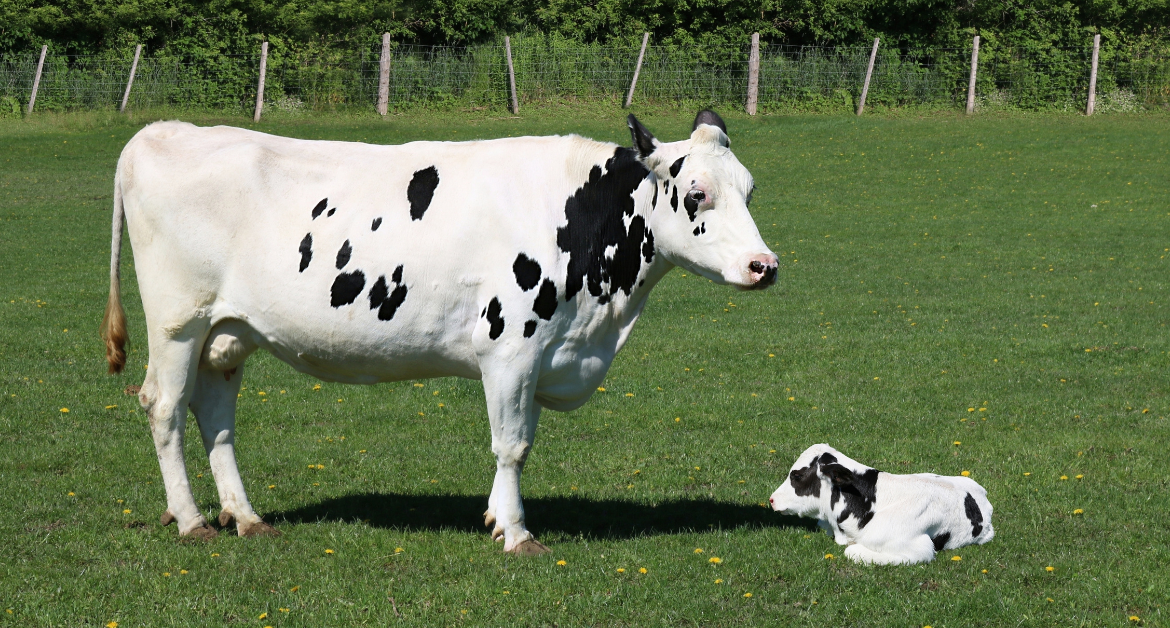The Irish livestock industry is one of the most important sectors of the economy, accounting for over 50% of agricultural output and employment. The success of the industry depends on the health and productivity of the livestock, which in turn depends on the quality of the genetic stock.
Ireland has a long tradition of excellence in livestock breeding, and has been a world leader in the development of new techniques and technologies in the field. Genetic improvement has played a vital role in the success of the Irish livestock industry, and will continue to do so in the future.
The Irish government has recognised the importance of genetics in the livestock industry, and has invested heavily in research and development in this area. This has resulted in the development of a number of world-class genetic research centres in Ireland, which are making a significant contribution to the improvement of the livestock industry globally.
There are a number of reasons why genetics is so important in breeding healthy and productive livestock.
First of all, it is the only way to ensure that animals are born with the right combination of traits that will allow them to thrive in their environment.
Secondly, genetic improvement can help to reduce the incidence of disease and improve the overall health of the livestock population. Finally, genetic improvement can increase the productivity of the livestock, resulting in more food and income for the farmers.
The Irish government has made a wise investment in the genetic improvement of the livestock industry, and this will continue to pay dividends in the years to come.
Some of the key benefits of genetic improvement include:
1. Increased disease resistance
2. Improved feed efficiency
3. Increased milk and meat yield
4. Increased growth rate
5. Improved wool quality
The Irish livestock industry is a major contributor to the economy, and the continued success of the sector depends on the health and productivity of the livestock.
Genetics plays a vital role in ensuring that animals are born with the right combination of traits, and the government has invested heavily in this area of research. The benefits of genetic improvement are numerous, and will continue to benefit the industry for many years to come.
What are some of the risks associated with over-reliance on genetics in livestock breeding?
While there are many potential benefits to genetic improvement of livestock, there are also some risks associated with over-reliance on genetics. One of the main risks is the possibility of reducing genetic diversity within a livestock population.
This could lead to problems in the future if the animals are faced with a new disease or environmental challenge that they are not able to cope with. Another risk is the possibility of creating animals that are too specialized for a particular environment or purpose.
Finally, there is a risk that the animals will become less resilient and adaptable over time, as they will no longer be exposed to the same level of environmental stressors. While there are some risks associated with over-reliance on genetics, the potential benefits outweigh the risks.
What are the ethical concerns associated with genetics engineering of livestock?
One of the key ethical concerns associated with genetic engineering is the potential for creating “Frankenstein” animals, which are animals that have been artificially created for a specific purpose. These animals may be created with genetic modifications that make them larger, faster, or more resistant to disease.
However, they may also be created with genetic modifications that make them less able to cope with stress, less able to feel pain, or more aggressive. There are also concerns about the potential for abuse if these animals are used for evil purposes, or if they escape into the wild and begin to interbreed with natural populations.
Another ethical concern is the potential for “designer babies”. This is the term used for babies that are artificially created using genetic engineering techniques. Parents may be able to choose the physical characteristics, intelligence, and even the personality of their child.
This could lead to a situation where only the wealthiest people are able to afford to have children that are “perfect” in every way.
The ethical concerns surrounding genetic engineering are many and varied. However, the potential benefits of the technology are also significant. It is important to continue to monitor the situation and to regulate the use of genetic engineering to ensure that it is used for the benefit of humanity, and not for the detriment.
What are the possible environmental impacts of genetically modified livestock?
The possible environmental impacts of genetically modified livestock are largely unknown. This is because there has been very little research conducted in this area. There are concerns that genetically modified animals could escape into the wild and begin to interbreed with natural populations.
This could lead to the spread of genetic modifications into the natural population, which could have unknown and potentially harmful consequences. There are also concerns that the use of genetically modified animals could lead to the emergence of new diseases, as the animals would be less able to cope with stress and more susceptible to disease.
These are just some of the potential environmental impacts of genetically modified livestock. There is a need for further research in this area to assess the risks and potential impacts of this technology.
What are the predictions for Breeding Livestock in Ireland for the next few years?
The predictions for the future of breeding livestock in Ireland are positive. The Irish government has invested heavily in this area of research, and the continued success of the livestock industry depends on the continued improvement of the genetic stock.
The use of genetic engineering and other technological advances will allow for the continued improvement of the quality of Irish livestock. This will lead to increased productivity and profitability for the industry, as well as improved animal welfare.
The ethical concerns surrounding genetic engineering are many and varied. However, the potential benefits of the technology are also significant. It is important to continue to monitor the situation and to regulate the use of genetic engineering to ensure that it is used for the benefit of humanity, and not for the detriment.
Get LSL Facebook updates.

